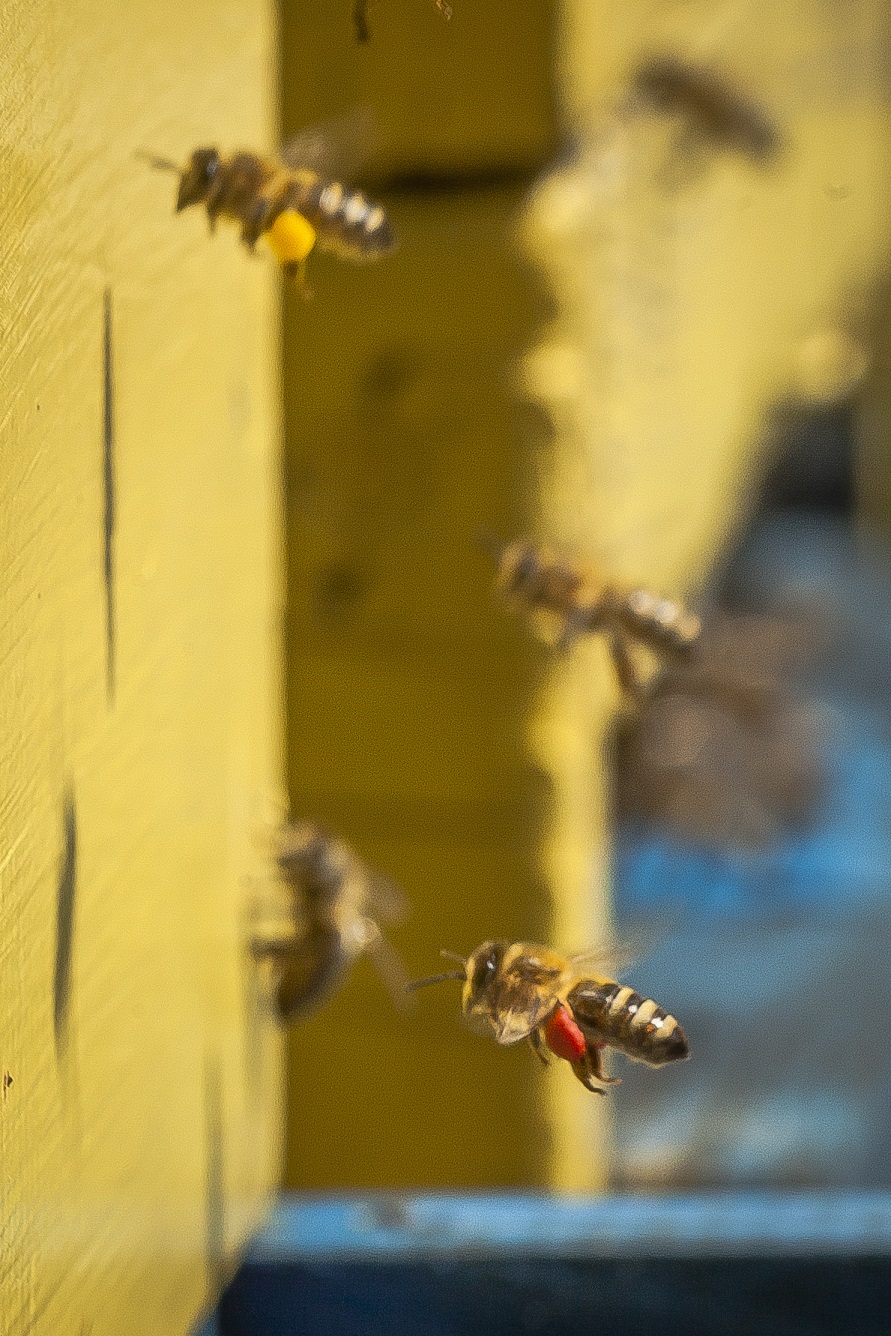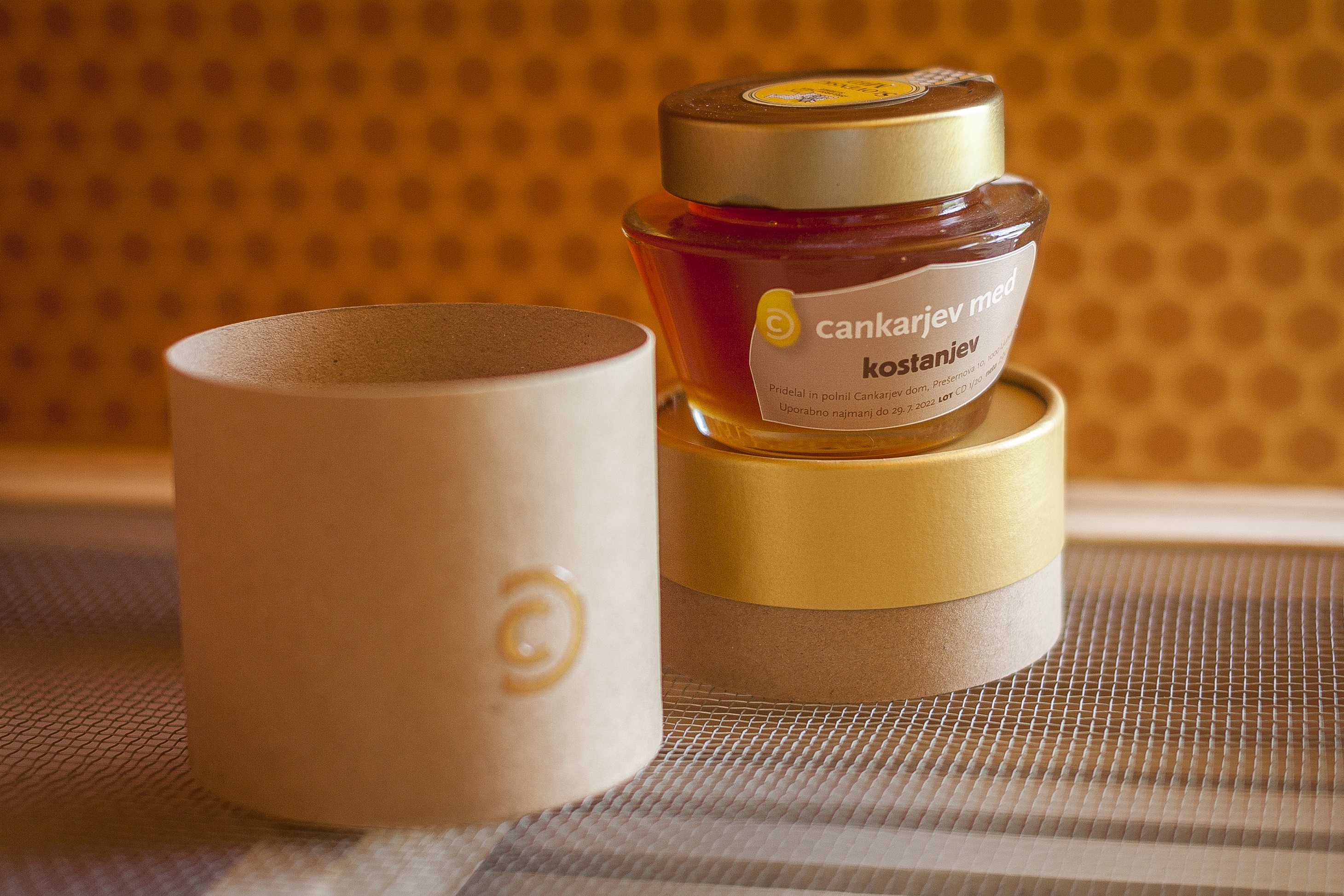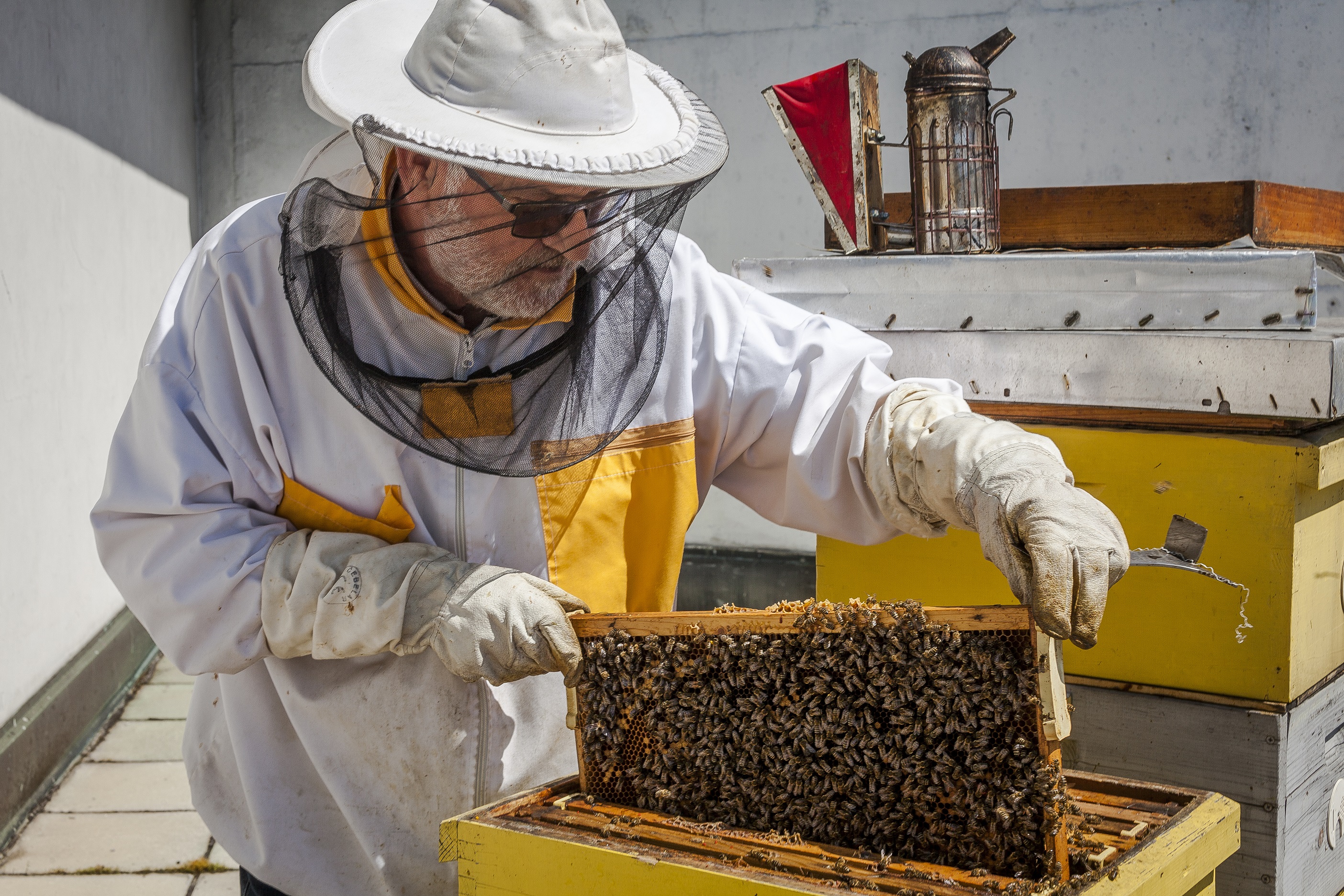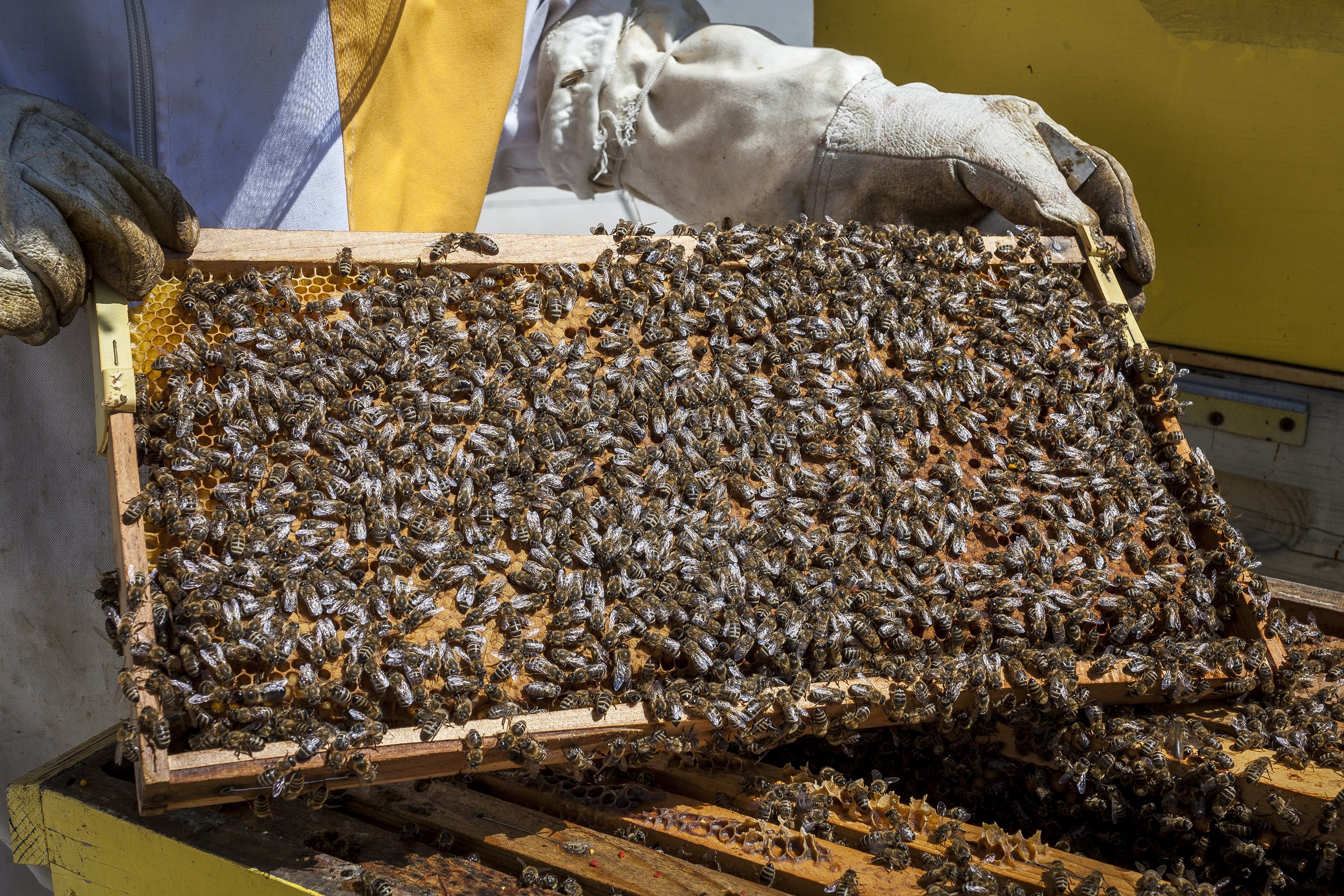Join the circle of CD enthusiasts, staying up-to-date with all the latest news, event announcements and special offers.
Urban Beekeeping at Cankarjev dom
By pollinating plants bees enable their fertilisation and survival.
Plants and crops enable human survival.
As an urban beekeeper Cankarjev dom is helping bees survive.
Cankarjev dom not only fosters culture and the arts as well as our shared human heritage with great sensitivity, but also shows deep concern for the nature. In keeping with this philosophy, the first four beehives were installed on one of CD’s rooftop terraces in spring 2011. It is with great pride that Cankarjev dom can profess to be the pioneer of Slovenian urban beekeeping.
In December 2017, the UN General Assembly endorsed Slovenia’s initiative to declare 20 May World Bee Day. On this occasion, a special programme was presented to introduce CD’s beekeeping to the public – a relatively uncommon activity for a modern cultural and congress centre located in the heart of Slovenia’s capital, Ljubljana.
The bees fly within a radius of three kilometres. Ljubljana’s urban environment with its flowering trees and gardens in the Tivoli Park, the Rožnik green and Castle hill provides profuse bee pasture. The honey delivery of our nine bee families depends on weather conditions at the time when the plants are in full flower. The annual honey production ranges between 40 to 100 kilos.

The honey produced by the bees of Cankarjev dom has been analysed as excellent honey by the Reference Laboratory Bremen and has earned the SMGO (Slovenian Honey with Protected Geographical Indication) certificate of quality.
Cankarjev dom, Cultural and Congress Centre Ljubljana, is a vital point on Ljubljana’s Bee Path, connecting 35 institutions with the aim of informing the public on apicultural heritage and the importance of bees.

Group guided tours of the beehives can be booked by prior arrangement P 051 366 378.


